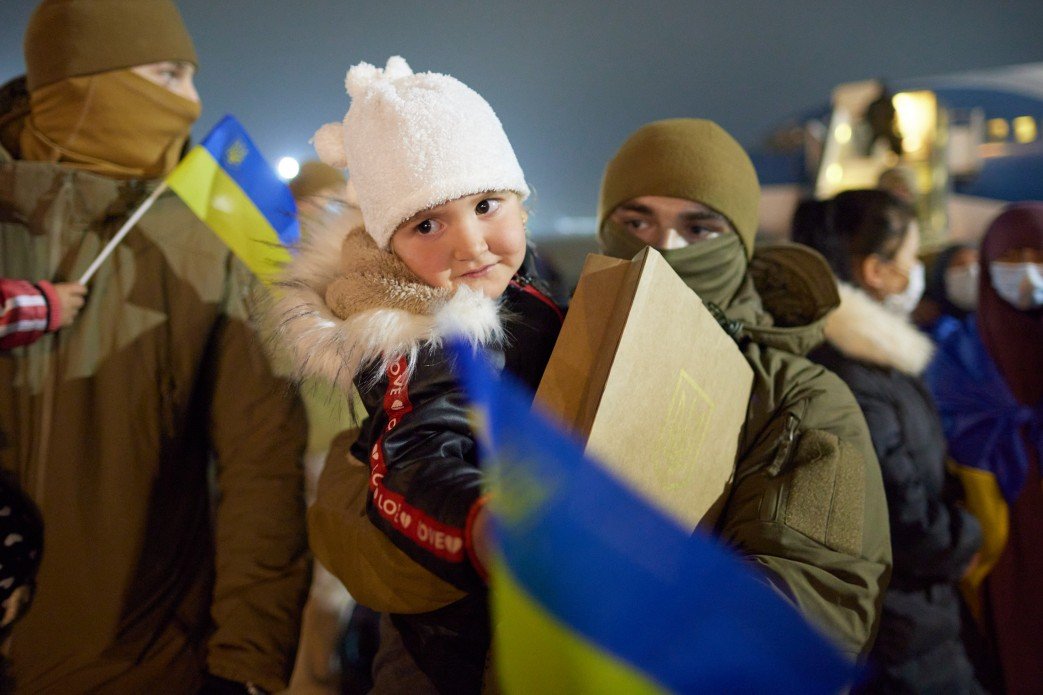Applying the Arithmetic of Compassion to the Plight of Refugees
Return of Ukrainian women and children from Syrian refugee camp. This file comes from the website of the President of Ukraine. CC BY 4.0.
By Scott Slovic
Elizabeth Svoboda emphasizes key ideas from the Arithmetic of Compassion project in her article “How to Deepen Our Compassion for Refugees,” which appeared on April 7, 2022, in UC Berkeley’s Greater Good Magazine: Science-Based Insights for a Meaningful Life:
https://greatergood.berkeley.edu/article/item/how_to_deepen_our_compassion_for_refugees
Responding to the extraordinary surge of refugees caused by the current war in Ukraine, Svoboda turns to Paul Slovic and other psychologists to explore why the public responds compassionately to the need for humanitarian aid in some instances and fails to do so in others. The article particularly focuses on the role of emotions in triggering humanitarian engagement or leading us astray, suggesting that biases toward particular groups of people may explain why there has been a stronger public response to the exodus of Ukrainian refugees than may have been the case previously with Syrian and Afghan families, who are equally deserving.
In particular, Svoboda steers her discussion toward the psychological underpinnings of motivation for action in support of refugees. Slovic and others argue that the opportunity to interact with refugees bolsters the empathy people have with them, resulting in a stronger desire to provide help.

